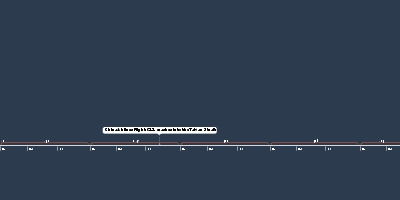11 déc. 2001 - China joins the World Trade Organization (WTO)
Description:
Until the 1970s, China's economy was managed by the communist government and was kept closed from other economies. Alongside political reforms, China in the early 1980s began to open its economy and signed a number of regional trade agreements. China gained observer status in the General Agreement on Tariffs and Trade (GATT) and from 1986, began to work towards joining that organisation.China aimed to be included as a World Trade Organization (WTO) founding member in 1995 (which would validate it as a world economic power) but this attempt was thwarted because the United States, European countries, and Japan requested that it first reform various policies, including tariff reductions, open markets, and industrial policies.
After the 1997 Asian financial crisis, China sold off or merged many unprofitable state-owned enterprises. In 1998, it reformed its State Council to greatly reduce the mandate of the State Planning Commission and increase the power of the State Economic and Trade Commission. This shift also corresponded to the change in premiership from Li Peng to Zhu Rongji, the latter of whom strongly believed that China needed deeper economic restructuring.
This restructuring included crackdowns on corruption and the establishment of chambers of commerce. The WTO Ministerial Conference of 1999 was the penultimate step before Chinese accession.
On 11th December 2001, China officially became a member of the WTO, marking a major milestone for its integration into the global economy. This was the culmination of a long and arduous negotiation process, marked by intensive economic reforms within the country, and painstaking bilateral and multilateral talks with existing WTO members on terms of membership. In a related development, the United States granted permanent normal trade status to China two weeks later on 27th December.
Joining the WTO required China to commit to further liberalising its economy, reducing trade barriers, improving transparency, and abiding by the WTO's rules for international trade. As the world's most populous nation, and one with a rapidly expanding economy, China's inclusion significantly expanded the global market.
Between 2001 and 2007, China's GDP growth rate increased from 8.3% to 14%. Although slowing after 2008, it nevertheless continued to catch up with the United States in terms of total GDP – which grew from $1.3 trillion in 2001 to $17.7 trillion by 2021, a nearly fourteen-fold increase. China's success was driven by factors including massive infrastructure development, expanded manufacturing, and a rising middle class that boosted domestic consumption.Between 2001 and 2007, China's GDP growth rate increased from 8.3% to 14%. Although slowing after 2008, it nevertheless continued to catch up with the United States in terms of total GDP – which grew from $1.3 trillion in 2001 to $17.7 trillion by 2021, a nearly fourteen-fold increase. China's success was driven by factors including massive infrastructure development, expanded manufacturing, and a rising middle class that boosted domestic consumption.
However, while opportunities arrived for foreign businesses seeking access to the massive Chinese market, new challenges began to emerge for workers in Western countries. The offshoring and outsourcing of jobs proved particularly controversial, as many companies now took advantage of lower labour and production costs in China. This led to a significant shift of manufacturing from the United States, Europe, and elsewhere to China.
The perception of unfair competition from Chinese industries became another issue. Some in the West argued that China failed to fully comply with the rules established by the WTO, accusing it of intellectual property theft, dumping products at unfairly low prices, and providing state subsidies to its industries in a way that created an uneven playing field. China's compliance with trade rules would be a subject of debate and tension for many years to come – particularly with major trading partners like the United States.
China's human rights record was yet another area of concern. Some critics argued that by allowing China into the WTO, the West was effectively condoning its record on issues like workers' rights and political freedoms.
Lastly, rapid industrialisation and a surge in fossil fuel consumption – particularly coal power – led to major environmental impacts. By 2006, China would overtake the United States to become the world's largest emitter of greenhouse gases.
These and other subjects contributed to debates about the benefits and drawbacks of globalisation, and would be a key factor in the rise of economic nationalism and protectionism in some Western countries over subsequent decades.
Ajouté au bande de temps:
Date:
11 déc. 2001
Maintenaint
~ Il y a 23 ans
